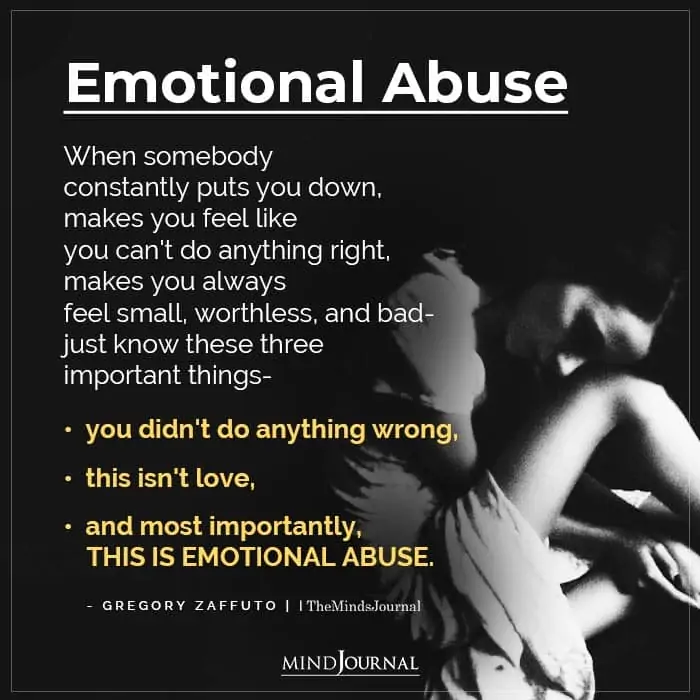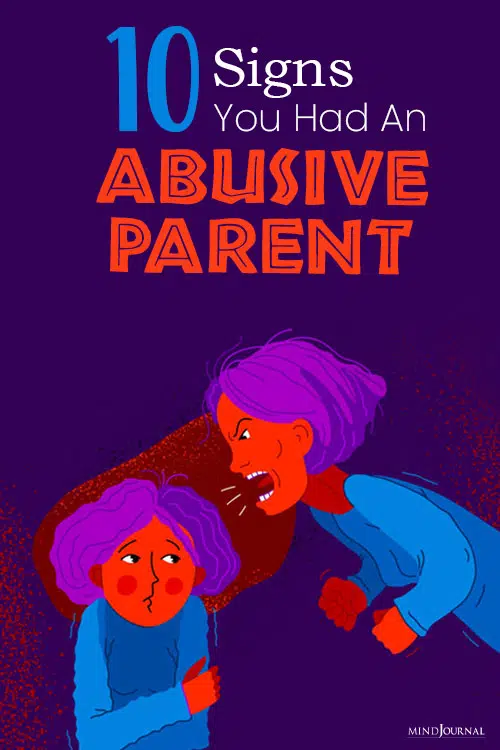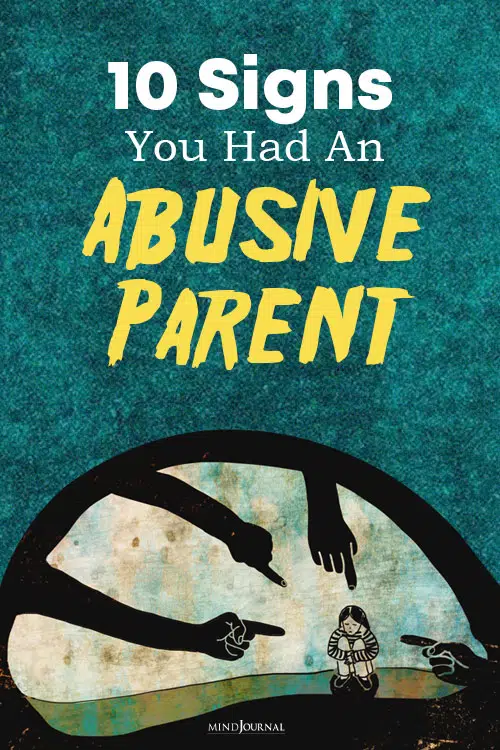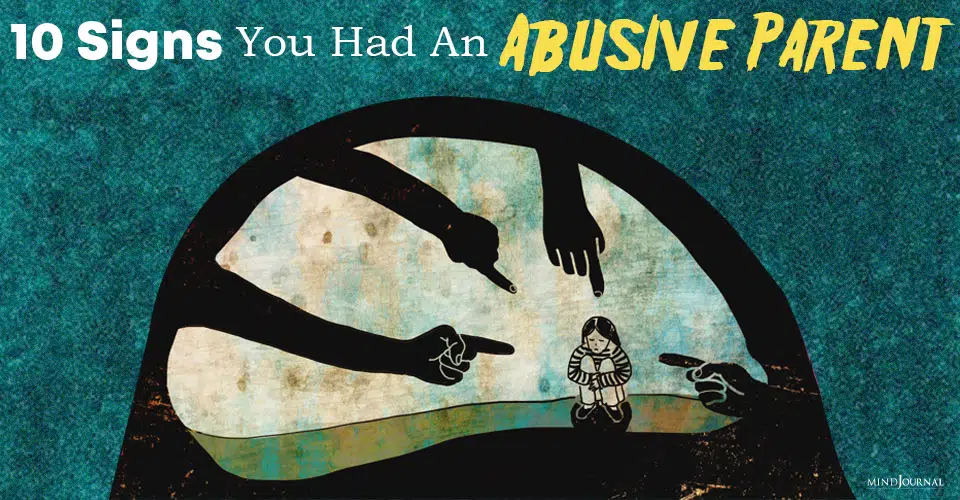Parents are supposed to love their children unconditionally. They nurture us so that we can grow up to be strong, capable adults and confidently navigate through this cruel world. Unfortunately, a child is emotionally abused every ten seconds.
Child abuse is a sad reality that affects more than 6.6 million children every year. In the United States, 1 in 8 children experiences neglect, emotional or physical abuse. As emotional abuse doesn’t leave any physical scars, it can often go unnoticed.
What is emotional abuse?
Parents have the right to reprimand their children when they make a mistake, but when such behavior starts to impact the self-esteem of the child, then it can be emotional abuse.
Emotional or psychological abuse is subtle and overt. As it can take place under the guise of parental advice or ‘guidance, it is hard to identify. Emotional abuse involves non-physical toxic and manipulative behaviors which systematically eat away a child’s sense of self-worth, self-concept, and self-confidence. It negatively affects their development and impairs their psychological well-being. Emotional abuse includes emotional assault, verbal abuse, brainwashing, criticizing, belittling, humiliating, or isolating a child.

Effects of emotional abuse
Emotional abuse can be more damaging and lasting than physical scars as it can cut to the identity and perceptions of the child.
Psychologists believe that emotional abuse is a serious threat to childhood and emotional development. The American Psychological Association states “Given the prevalence of childhood psychological abuse and the severity of harm to young victims, it should be at the forefront of mental health.”
Being unloved and neglected can cause broken trust which may permanently damage a child. Emotional abuse can scar your entire life. It can cause poor mental development and make it difficult for you to maintain relationships as an adult.
According to studies, 80% of 21-year-olds who experienced childhood abuse had at least one psychiatric disorder. Over 66% of adults getting treatment for drug abuse have experienced neglect or abuse in their childhood.
When they don’t seek help, victims of childhood abuse can become abusers themselves as adults. It can also affect your education, career and lead to criminal behavior as well.
Read Also, Parental Emotional Abuse: The Unseen Scars Left Behind
In this article, we are going to look at some of the most common signs you were abused in your childhood by your parents.
But before we get into that, make sure to like this article, if you enjoy it, and don’t forget to subscribe to our channel so that you don’t miss out on any of our amazing articles.
Now let’s take a look at some signs you experienced childhood emotional abuse.
10 Signs you had an abusive parent
1. You have unhealthy relationships
If you grew up with toxic, abusive parents, then that’s the type of relationship you will seek as an adult. You will find yourself in relationships that reflect the relationship with your parents, as it is the first relationship you formed. Experiencing emotional abuse as a child can damage your ability to trust others, and this affects your ability to experience and maintain healthy relationships.
If you have a pattern of being in unhealthy relationships involving emotional abuse, then it’s a strong indicator that you had abusive parents.
2. You have low self-esteem
Having low self-esteem and a poor sense of self-worth is one of the most prominent signs of childhood emotional abuse. Emotional scars from childhood can cut deep and affect how you think, feel and behave as an adult. Low self-esteem mainly stems from verbal abuse and constant criticism which can make you feel inadequate and worthless. It can also lead to self-doubt, self-criticism, and self-hatred damaging your motivation, hope, and pride. Emotional abuse in childhood can even result in depression in your adulthood.
3. You repress emotions
Do you think that expressing your emotions is a sign of weakness? If your abusive parents prevented you from expressing your emotions, then you probably learned to ignore your feelings and move on. This is a coping mechanism used by many abused children who face abuse & painful emotions. Repressing emotional pain is how a child’s brain protects itself. If you still bottle up your emotions as an adult, then it can be a warning sign of experiencing childhood emotional abuse.
4. You seek validation & attention
As emotional abuse leads to low self-esteem, receiving negative attention as a child can make you constantly seek external validation and attention from others. As you did not receive acknowledgment, acceptance, or praise during your childhood, you feel starved for love, affection, and approval.
Excessive attention-seeking behavior is a way of making yourself feel better and getting the attention they didn’t like children – if only temporarily. This can manifest itself in either personal relationships or in the professional field. Regardless, this is a desperate attempt to seek validation as you felt neglected and unworthy as a child.
5. You think you’re not good enough
If you feel guilt and shame every time something goes wrong even if it wasn’t your fault, then you may have emotionally abusive parents. Psychological abuse is often focused on performance and achievement. Toxic parents tend to project their own dreams and aspirations on their children and have unrealistic expectations from their children. So despite your best efforts, your parents were probably never satisfied with your performance or accomplishments. No matter what you did, it was never good enough for them and so they withheld their love & affection no matter how well you did.
As an adult, you still tend to believe you are not good enough despite being successful in academics, career, or even personal relationships. You always feel self-critical and believe you can do more or perform better. If you constantly doubt your abilities or performance, then it’s a good sign that you were abused as a child.
6. You have poor social skills
Emotional abuse during childhood can impair social learning abilities leading to introversion, social withdrawal or isolation in adulthood. Childhood abuse can affect the development of interpersonal relatedness skills and can cause difficulty with social functioning when you’re an adult. If you have little to no friends, feel shy or uncomfortable in social situations, tend to be introverted, and gravitate towards toxic relationships, then you’ve experienced emotional abuse as a child.
Read Also, 8 Reasons Why Intelligent People Have Poor Social Skills
7. You have a pessimistic outlook on life
Toxic and abusive parents tend to be pessimistic in life and have a negative personality. They believe nothing can go right in their life which adds to their manipulative and abusive behavior. When a child is raised by a pessimistic parent in an emotionally abusive environment, they can often develop the same negative outlook on life. Being surrounded by negativity during your developing years can make you internalize it.
And this can make you a pessimistic and negative person. Unfortunately, this can even turn you into an abuser as an adult. Thankfully, therapy can help you reframe your thinking and attitude.
8. You have difficulty regulating emotions
Are you prone to emotional or angry outbursts? Then it is likely that you were abused as a child by your caregiver. As you were neglected or rejected during your developing years, you have a hard time accepting rejection as an adult. This can cause disruptive behaviors and emotional outbursts. Childhood emotional abuse can affect your ability to feel, express, and control your emotions, causing anger issues and unhealthy attachment styles in adult relationships. It can also lead to post-traumatic stress disorder (PTSD), depression, and an inability to relax.
9. You are aggressive towards others
Studies show that there is a strong correlation between childhood abuse and violence perpetration. If you were raised by emotionally abusive parents, then you can be highly aggressive towards other people. In fact, you may become a bully or an abuser yourself to imitate your parents’ abusive behavior or to gain a sense of control in your life.
Childhood abuse can cause extreme adult aggressive tendencies. You are more likely to engage in future intimate partner violence or domestic violence and even animal abuse. So if you tend to behave aggressively, then probably had an abusive parent.
10. You are a perfectionist
Do you have a hard time accepting your imperfections? Poor self-esteem and psychological wounds of childhood often develop perfectionistic traits in abuse survivors. The more your parents withhold love, the harder will strive to prove your worth and earn their affection. As you think you’re not good enough, your fear drives you to do more and do better each time. Sadly, your pursuit of perfection will gradually damage your passion, inspiration and creativity. If you are haunted by the demon of perfectionism, then it is a good sign that you had an abusive parent.
As abusive behavior by parents often goes unnoticed, you need to identify these signs to realize how emotional abuse has affected you as a person. If you are trying to cope with the impact of being raised by an abusive parent, then you need to start the healing process immediately.
You can start by seeking professional help, talking to a trusted loved one, and realizing that you are worthy and enough as you are.
How many of these signs can you relate with?
We would love to know about your thoughts and experiences about childhood emotional abuse. So feel free to share your opinions below.










Leave a Reply
You must be logged in to post a comment.